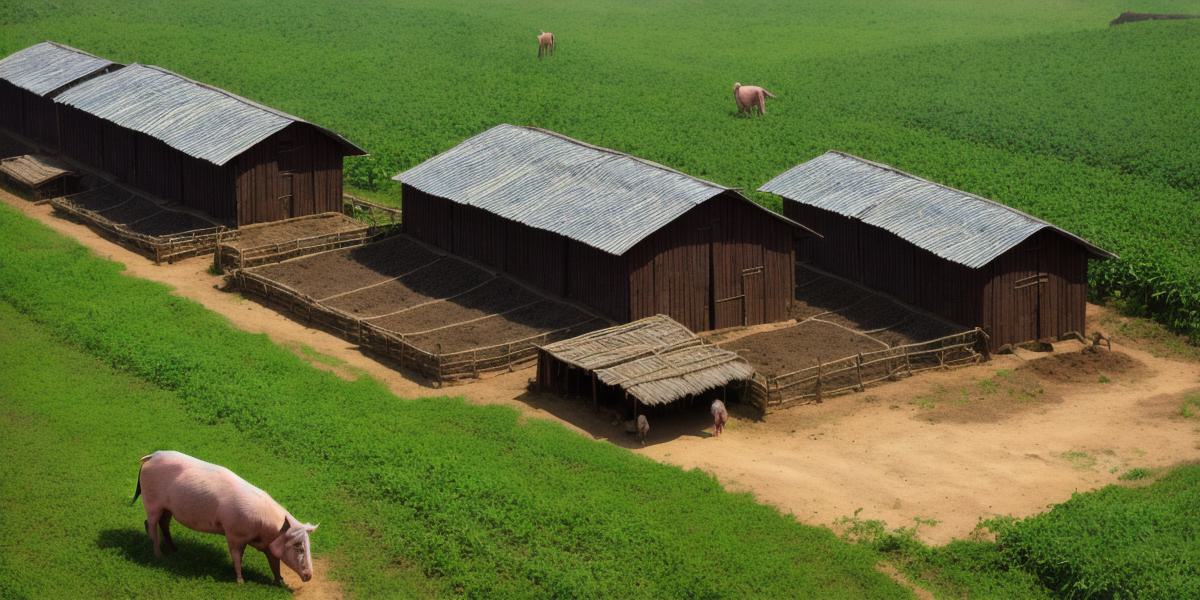How to Start Pig Farming in Ghana: A Step-by-Step Guide
Pig farming is an agricultural venture that has gained popularity in Ghana due to its potential profitability and sustainability. If you are considering starting a pig farming business, this guide will provide you with step-by-step instructions on how to do it successfully in Ghana.
- Choose a Suitable Location
The first step in starting a pig farming business is selecting a suitable location. You need a piece of land that has enough space to accommodate the number of pigs you plan to keep. It should also have access to clean water, food, and veterinary services. If you do not own land, you can consider leasing or renting a farmland from a farmer who owns one.
- Obtain the Required Permits and Licenses
Before starting your pig farming business, you need to obtain the required permits and licenses. These include a license from the Ghana Pig Farmers Association, permission to operate a livestock farm from the Ghana Food and Agriculture Organization (FAO), and a tax identification number from the Ghana Revenue Authority.
- Obtain Pigs and Vaccinate Them
The next step is obtaining healthy pigs for your business. You can buy them from certified pig breeders or local farmers who have raised them using proper techniques. Once you have obtained the pigs, it’s essential to vaccinate them against common diseases like porcine paratuberculosis and swine flu.
- Build a Suitable Pig Pen
Pigs need a suitable living environment where they can move around freely, access clean water, and be protected from weather elements. You will need to build a pig pen that is large enough to accommodate the number of pigs you have. The pen should also have proper ventilation, lighting, and drainage systems.
- Feed Your Pigs Properly
Pigs require a balanced diet consisting of grains, fruits, vegetables, and supplements. You can purchase ready-made pig feed from local feed manufacturers or produce your feed using locally available ingredients. It’s essential to ensure that your pigs get the right amount of nutrients they need to grow healthy and strong.
- Monitor Your Pigs’ Health Regularly
Regular health checkups are crucial for preventing and treating illnesses in your pigs. You should monitor your pigs’ health regularly, noting any changes in behavior or physical appearance. If you notice any signs of illness, seek medical attention from a qualified veterinarian.
- Sell Your Pigs When They Reach Marketable Age
The final step is selling your pigs when they reach marketable age. Ghana’s pig farming industry mainly consumes locally raised pigs for meat and by-products like manure and skins. You can sell your pigs to local butchers or processors who will turn them into products like bacon, sausages, and pork chops.
FAQs:
-
What are the best breeds of pigs for commercial pig farming in Ghana?
The Kurobuta and Landrace breeds are popular among commercial pig farmers in Ghana due to their high meat yield and good carcass quality. However, other breeds like Yorkshire and Berkshire also have a good reputation in the industry.
* How much space do I need for my pig pen?
The size of your pig pen will depend on the number of pigs you plan to keep. Generally, each pig needs about 1.5-2 square meters of space, but it’s better to provide more space to prevent overcrowding and ensure good ventilation.
- What are the common diseases in pigs that I should vaccinate them against?
The most common diseases in pigs in Ghana are porcine paratuberculosis (Johne’s disease), swine flu, and foot-and-mouth disease.
